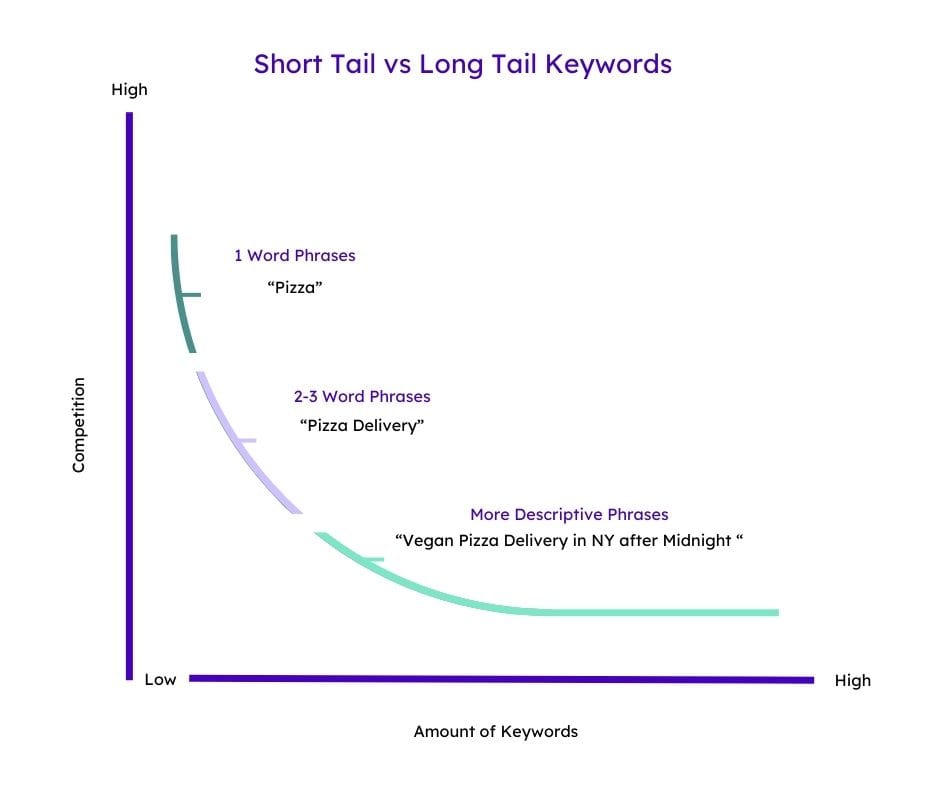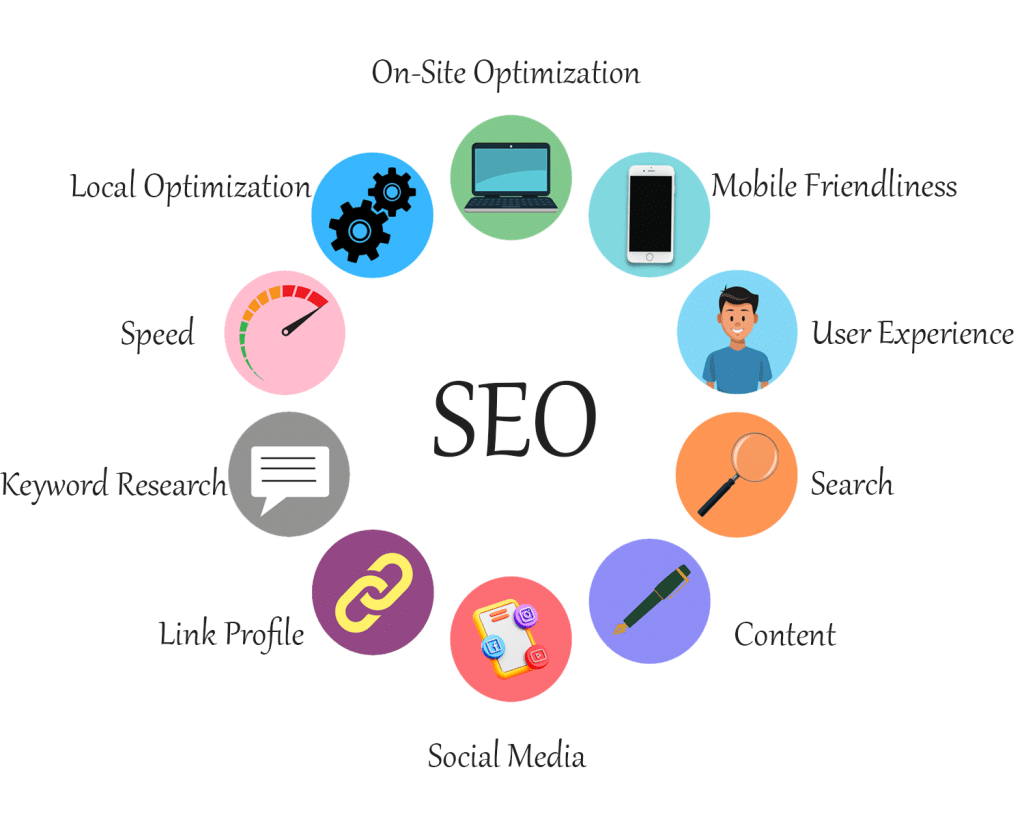SEO has been a popular topic for quite some time, and with the ever-changing algorithms of search engines, it can take a lot of work to keep up. It also doesn’t help that so much conflicting information is out there! You hear one thing from one person and something totally different from another.
If you’re stuck in confusion, we’re here to set the record straight and give you a clearer idea of how to boost your website visibility. Here are 7 common SEO myths debunked! After reading this, you’ll be better positioned to make informed decisions about your SEO strategy.
1. High Keyword Density Is a Top Priority
In the past, it was thought that using keywords excessively would increase your website’s visibility in search engine results. This simply isn’t true! In fact, stuffing a page with too many keywords can actually hurt your SEO ranking. The key is to write high-quality content and strategically include relevant keywords throughout the text.

You want to aim for a natural balance that doesn’t look out of place – avoid repeating the same keyword repeatedly, but still make sure that it appears in the right places that will help the search engine algorithms “find” it.
At the end of the day, what matters most is creating valuable content – search engine algorithms have gotten better at understanding context and the user intent behind each query, so keyword stuffing won’t get you very far anymore.
2. A Linking Strategy Isn’t Necessary
Not true! Link building shouldn’t be done randomly; it’s important to build links that are valuable and relevant to your website.
When done correctly, link building can effectively boost your website visibility by increasing the number of inbound links pointing back to your site. When that happens, it helps search engines understand the relevance and authority of your website, as well as how popular it is.
However, Google pays attention not only to the quantity of links but also their quality, so make sure you’re linking to reputable websites with content related to yours. Randomly generated links or untrustworthy ones with irrelevant content won’t do much to help your website’s visibility.
Also, if your website visitors find the content you’ve linked to valuable, then they’re more likely to stay longer on your website and come back in the future – so it’s generally a win-win situation! You’ll create a better experience for your users and be rewarded with higher SEO rankings!
3. Keywords With Less Than 1,000 Monthly Pageviews Aren’t Worth It
This is a big one! Many businesses focus on higher-volume keywords and completely ignore the value of lower-volume keywords – which are often referred to as “long-tail” keywords. These are phrases that get a much smaller amount of pageviews each month because they’re too specific to show up in the top rankings for a broad term.
However, these keywords can actually be more valuable than higher-volume ones because they have less competition and are often better aligned with user intent – meaning visitors searching for long-tail terms are likely to convert at a higher rate! So, yes, the traffic from these keywords might not be as high, but they can still give you great returns.

For instance, if someone searches for “best red shoes for running,” they’re probably looking to make a purchase soon, not just browse. In contrast, someone searching for “red shoes” might not be as close to making a purchase.
Similarly, if you’re a local business, targeting long-tail keywords related to your location can be an effective way to draw more customers to your doorstep – so don’t underestimate the value of those “small” phrases!
So in your keyword research strategy, ensure you’re including high-volume and low-volume keywords – that way, you won’t miss out on any potential opportunities to increase your website visibility!
4. SEO Only Involves Publishing a Lot of Content
There’s no denying that content is an important part of SEO, but it’s by no means the only factor. Yes, you should be publishing content regularly on your website to keep it fresh and engaging – but you also need to work on other aspects such as technical SEO (page speed, URL structure, schema, etc.) and off-page optimization (social signals, backlinks, etc.).

These activities are equally important and can often be overlooked in the rush to create content. The best SEO strategists understand that all of these elements need to be balanced to get the best results – it’s not just about writing and publishing as much content as possible.
So, don’t deprioritize the other aspects of your SEO strategy just because content is the most visible. Taking a holistic approach to SEO can help you ensure that all parts of your site are optimized and working together to give users the best possible experience – which will, in turn, lead to higher rankings!
5. Social Media Doesn’t Affect SEO
Okay, let’s be clear – social media doesn’t directly affect SEO rankings. But that doesn’t mean it has no effect at all!
Social media can indirectly boost your rankings by helping you build relationships with other websites, create quality backlinks, and reach new audiences. It also helps to generate more interest in your website, which can lead to more people visiting it, sharing your content, and linking back to it. And guess what? These are the factors that Google does take into account when determining rankings!
All you need to do is consistently create content and share it on social media networks as part of your social media strategy. The more you do that, the more visibility and engagement you’ll get.
So, while social media won’t give you an immediate SEO boost, it’s still a valuable tool for increasing your visibility and earning authority in the eyes of search engines. So don’t overlook its importance – use it to your advantage and watch those rankings soar!
6. Only Blogs With 2,500+ Words Will Rank
This is a common misconception, and it’s just not true. Yes, longer posts typically have more depth and content and thus rank better than shorter ones – but that doesn’t mean all blogs need to be 2,500+ words!
It’s important to remember that Google looks at the overall quality of your content, not just its length. So, if your blog posts are well-researched and authoritative, even shorter ones will still rank.
This is especially since not all topics require such long-form content. You can easily create high-quality posts that are 500+ words in length. For instance, quick tips, listicles, and opinion pieces can often be just as valuable and informative as longer pillar posts – so don’t be afraid to mix them up and appeal to different types of readers with shorter pieces.
All in all, don’t be discouraged by the idea of having to write lengthy posts all the time. Write thoughtful, useful pieces that are tailored to the topic at hand, and you’ll be sure to get the results you’re looking for!
7. If I Reach Page One, My Job Is Done
If there’s a constant in the world of SEO, it’s that nothing is constant! Getting to the first page of search results is a huge achievement, but it doesn’t mean you can relax and expect those rankings to stay put.
Search engine algorithms are constantly evolving, and your competitors could be making moves that could overtake or even replace your content. That’s why it’s important to develop an ongoing SEO strategy that keeps your content up-to-date and optimized for the keywords you’re targeting.
This means revisiting your content regularly to remove any outdated information, update keyword optimization, and add new content to keep users engaged. It also involves consistently building link relationships and working on off-page SEO tactics such as social media engagement, guest blogging, and content syndication.
So, while getting to the first page of search results is definitely something to be proud of, it’s only half the battle – you still need to keep up with your SEO strategy if you want to stay there!
The Takeaway: SEO Is a Constantly Evolving Process
SEO is a constantly evolving process, and there are a lot of misconceptions out there about what it takes to rank well.
However, the key takeaway here is that nothing beats consistent effort – if you want to stay ahead of the curve in SEO, you need to keep up with the latest trends, create quality content and share it across different platforms. Keep a close eye on your competitors, build quality relationships with other websites, generate backlinks, and engage with users through social networks. If you do that consistently, you’ll surely achieve great results!
And if you need an expert to stay on top of your SEO strategy, let us know – our team at ShiftWeb is here to help! Happy optimizing!


